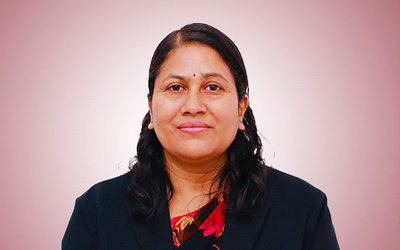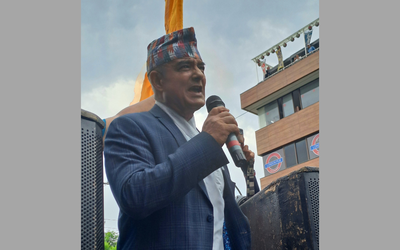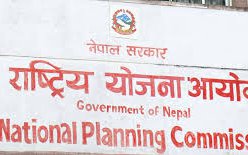More on News





Pro-human rights organizations and their natural and un-natural allies in Nepal are neither more respected than, nor much different from the discredited political parties in the country. Their reports and the advocacy they carried out had a lot of meaning at least until the 2005 political change. The government used to fear them. But during and after the 2005 change, the civil society, human rights groups and most NGOs working for those causes are seen as either adopting dual standards, or behaving purely like anti-state actors. In the process, they have clearly sided with the political parties and actors out to demolish and destroy the authority of the state.
Now, the Human Rights Watch (HRW) has come out with a damning report showing how impunity has spread in Nepal. Almost coinciding with the release of the annual report -2012, Prime Minister Baburam Bhattarai responded to a show-cause notice issued by the Supreme Court on his decision to grant amnesty to his party colleague and legislator Balakrishna Dhungel, a convict in a murder case.
"It is up to the government to decide who to grant amnesty," was Bhattarai's terse response. Unfortunately, he is 100 per cent wrong. In a democracy, the principle of equality before law is non-negotiable, and the government or the Prime Minister cannot award anyone the above-the-law status. Not only that, Bhattarai has been making sweeping announcements that general amnesty will be granted to all those involved in human rights violation cases of the years of conflict. That clearly violates the Comprehensive Peace Accord, the basis of moving the peace and the constitution making process forward. A fair encouragement by the international community to the parties in the peace process including the Maoists, and uniform approach towards investigating the human rights violation by the state as well as the rebels during the conflict era would have helped enormously to get on towards the completion of peace process and constitution making.
But beginning with the United Nations Mission to Nepal led by Ian Martin-- someone with a glorious past of having held important position on HR bodies--it began behaving like a partisan body, forgetting that its role demanded impartiality and neutrality towards parties. Maina Sunuwar's case was taken up as emblematic, but Muktinath Adhikari's was forgotten. Even Madi massacre was not talked about for quite some time, although some groups have taken these two cases as undeclared emblematic cases now. Such attitude on the part of the civil society and human rights groups in Nepal created a situation in which their international patrons and supporters would not get a fair picture of the situation back home. What HRW says in its 2012 report in Nepal is not a situation that has emerged suddenly, but is the outcome of a process moving slow or fast in that direction. Whether Prime Minister Baburam Bhattarai is a traitor or a patriot (He has said Nepal may face a situation of merger either with India or China) may not be an issue for the international human rights groups--as it is purely for the Nepalese to assess and challenge him--but beginning with the systematic method of distorting Nepal's history right from its unification, to confiscating 'property of Gyanendra' without proper investigation, or curtailing his right to free movement and the right to religion, the Maoists have clearly demonstrated that it's for them to grant who should be (or should not be ) enjoying certain kind of freedom. None of the local civil rights groups or the constitutional institutions including the National Human Rights Commission said anything on this objectionable curtailment on the right of an individual simply because he happens to be a former King. Any double standard on the exercise of the fundamental rights (except during the state of emergency declared in the country which was not the case in Nepal) will lead to the erosion of credibility of the human rights organizations inside and outside the country. It is perhaps time for the organizations like the HRW to assess this fact.
HRW cannot be held accountable for the double standard exhibited by the governments on human rights issues and their violation. But it can always issue guidelines to its partner organizations not to adopt double standards while reporting the violations. Human rights do not work without democracy, and democracy demands adherence to the principle of equality before law by the state, by the civil rights groups as well as a large section of the diplomatic community, mainly the European and the Western World. Why does it not matter to them as intensely as it did before when Bhattarai extends the policy applied in the case of Gyanendra and now regularizes 'land-transactions' --some of them carried under gun points--during the years of conflict?
Bhattarai systematically moves towards having total control over the state, its machinery and the means of production. Those belonging to his party are 'more equal than others'. Maoists have never been in favor of the independence of judiciary. Neither democracy, nor human rights will survive without a free, competent and independent judiciary. A captive judiciary will lead to unfair trial, and denial of justice. From Maoists, to the Nepali Congress, Communist Party of Nepal-Unified Marxist Leninist (CPN-UML)and the Madhesi Morcha, they are moving towards appointing judges in the highest and lower courts on the basis of the party affiliation.
Justice will be denied, and there will be many more miscarriages of justice if the independence of judiciary is throttled by the executive in the days to come. There will be more human rights violations. HRW may have come out with its routine reports, but nothing better can be expected with a Prime Minister advocating unchallenged right to grant amnesty to a murder convict. It's time for introspection by the Nepalese civil society and human rights organizations.






